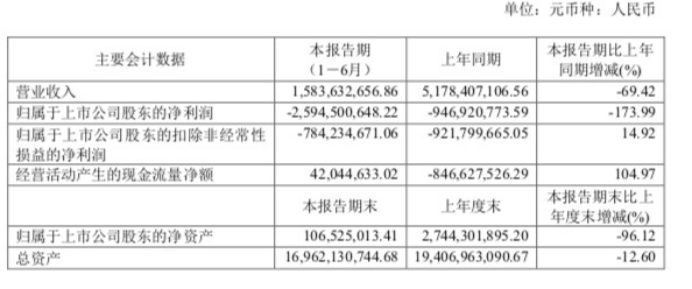- дё»йЎө > з”ҹжҙ»зҷҫ科 > >
дёӨеҸҘиҜқжҺҢжҸЎ Python жңҖйҡҫзҹҘиҜҶзӮ№вҖ”вҖ”е…ғзұ»еҮәеӨ„( дёғ )
class MetaSingleton(type): instance = None def __call__(cls, *args, **kw): """ this is comment """ print 'in call method' if cls.instance is None: # cls.instance = super(MetaSingleton, cls).__call__(*args, **kw) # cls.instance = type.__dict__['__call__'].__get__(cls)(*args, **kw) cls.instance = type.__call__(cls, *args, **kw) print cls.instance return cls.instance class Foo(object): __metaclass__ = MetaSingleton def __init__(self, a, b): self.a = a self.b = b a = Foo(1, 2) b = Foo(3, 4) assert a is b print a.a, a.b, b.a, b.b print type(Foo) print Foo.__call__ дҫӢеӯҗеҫҲзӣҙжҺҘпјҢ__call__ж–№жі•йҮҢйқўйҖҡиҝҮеҲӨж–ӯжҳҜеҗҰе·Із»ҸжңүеҲқе§ӢеҢ–иҝҮзҡ„е®һдҫӢпјҢжІЎжңүе°ұд»ҝз…§жӯЈеёёжңӘжҢҮе®ҡе…ғзұ»зҡ„жғ…еҶөдёӢи°ғз”Ёtypeзҡ„__call__ж–№жі•пјҲеҪ“然иҝҷйҮҢиҰҒд№ҲйҖҡиҝҮsuper bindingиҰҒд№ҲжүӢеҠЁжҢҮе®ҡclsдёҠдёӢж–ҮпјүпјҢз”ҹжҲҗдёҖдёӘFooзҡ„е®һдҫӢеӯҳеӮЁе’Ңиҝ”еӣһеҮәжқҘ гҖӮдҪҶжҳҜжңүдёҖдёӘжіЁж„ҸзӮ№жҳҜпјҢcallж–№жі•жҜҸж¬ЎеҲқе§ӢеҢ–е®һдҫӢеҜ№иұЎзҡ„ж—¶еҖҷйғҪдјҡиў«и°ғз”ЁпјҢиҝҷд№ҹе’Ңе…ҲеүҚиҜҙзҡ„жҺ§еҲ¶е®һдҫӢзҡ„з”ҹжҲҗдёҖиҮҙпјҡ Python (<class '__main__.B'>, <class '__main__.A'>, <type 'object'>) in call method <__main__.Foo object at 0x00000000024BFA90> in call method <__main__.Foo object at 0x00000000024BFA90> 1 2 1 2 <class '__main__.MetaSingleton'> <bound method MetaSingleton.__call__ of <class '__main__.Foo'>> иҝҳжңүдёҖдёӘйңҖиҰҒеңЁж„Ҹзҡ„ең°ж–№жҳҜжңҖеҗҺзҡ„дёӨиЎҢжү“еҚ°ж—Ҙеҝ—пјҢFooзұ»еһӢзҡ„е…ғзұ»жҳҜMetasingletonпјҲи°ғз”Ёnewз”ҹжҲҗзұ»еһӢзҡ„ж—¶еҖҷй»ҳи®ӨжҢҮе®ҡе…ғзұ»жҳҜ第дёҖдёӘеҸӮж•°пјүпјӣFooзҡ„__call__ж–№жі•жҳҜз»‘е®ҡдәҶFoo(MetaSingletonзҡ„е®һдҫӢпјүе®һдҫӢзҡ„MetaSingletonзҡ„ж–№жі•пјҢд№ҹе°ұжҳҜд»ҺеҸҰеӨ–зҡ„ж–№йқўиҜҒе®һжҜҸж¬ЎеҲқе§ӢеҢ–Fooзұ»еһӢеёӮйҮҢзҡ„ж—¶еҖҷпјҢе…¶е®һжҳҜеңЁи°ғз”Ёе…ғзұ»дёӯйҮҚеҶҷзҡ„__call__ж–№жі• гҖӮ е…ғзұ»иҝҷдёӘзү№жҖ§еӨ§еӨҡж•°жғ…еҶөдёӢзЎ®е®һдҪҝз”Ёзҡ„дёҚеӨҡ并且йңҖиҰҒзЁҚеҫ®иҠұзӮ№ж—¶й—ҙжқҘзҗҶи§ЈпјҢдҪҶжҳҜйңҖиҰҒдҪҝз”Ёзҡ„ж—¶еҖҷдјҡйқһеёёеҘҪз”ЁпјҢеҫҖеҫҖиғҪеӨҹе®һзҺ°еҫҲеӨҡдјҳйӣ…зҡ„еҠҹиғҪпјҢжңҖе…ёеһӢзҡ„е°ұжҳҜORMзҡ„е®һзҺ°дәҶпјҢеҸӘдёҚиҝҮдјҡжӣҙеҠ зҡ„еӨҚжқӮпјҢдё”pythoningдё”еӯҰд№ еҗ§пјҢPEACEпјҒ еҸӮиҖғиө„ж–ҷдёӯзҡ„й“ҫжҺҘйҮҢйқўжңүжңүеҮ дёӘе®һйҷ…зҡ„дҫӢеӯҗпјҢжң¬ж–Үд№ҹжҳҜеӯҰд№ е…¶дёӯзҡ„еҶ…е®№еҗҺй…ҚеҗҲдёҖдәӣе…¶е®ғдёҖдәӣдҪҝз”Ёз»ҸйӘҢд»ҘеҸҠзў°еҲ°зҡ„й—®йўҳзҗҶиҖҢжҲҗпјҢеёҢжңӣеҜ№еӨ§е®¶жңүз”Ё гҖӮгҖҗдёӨеҸҘиҜқжҺҢжҸЎ Python жңҖйҡҫзҹҘиҜҶзӮ№вҖ”вҖ”е…ғзұ»еҮәеӨ„гҖ‘
жҺЁиҚҗйҳ…иҜ»
-
еҸ‘з”ҹдәӨйҖҡдәӢж•…еҗҺеә”еҒҡд»Җд№ҲпјҢеҸ‘з”ҹдәӨйҖҡдәӢж•…еҗҺ第дёҖж—¶й—ҙжҖҺд№ҲеҠһ
-
зҡ®йқўйһӢе’Ңз»’йқўе“ӘдёӘиҖҒж°” з»’йқўзүӣзҡ®йһӢжҖҺд№ҲдҝқжҙҒ
-
ж№–еҚ—еҢЎиҖҒдә”иҫЈдёҡ е№ІиҫЈжӨ’з§ҚжӨҚдә§ең°и°ғе·®еӨ§и§Јжһҗ
-
еҶ°еҸҜиҜә|дә‘йЎ¶йҮ‘еҲҡдёҚеқҸиӣҮеҘі 4зӣҫ4жҳҹ4з§ҳз»қеҜ№йҳІеҫЎ
-
з—Өз–®еӨ§еҰӮй№Ң鹑иӣӢ (еҸЈжңҚ)дёӯиҚҜ1жңҲзңӢдёҚи§ҒвҖ”вҖ”зғҹеҸ°дёӯиҘҝеҢ»иӮӣиӮ еҢ»йҷўдёӯеҢ»з§‘еј дјҹе…Ҳдё»д»»еҰҷжүӢеӣһжҳҘ
-
иӢ№жһңжүӢжңәзӣҙи§’иҫ№жЎҶеӨҚеҸӨи®ҫи®ЎiPhone 12зі»еҲ—пјҢiPhone8д»·ж јеә•зәҝжҢҒз»ӯдёӢйҷҚ
-
еҚҠжңҲи°ҲзҪ‘|еҪ“зҪ‘жҡҙеҸҳжҲҗй»‘иүІвҖңз”ҹж„ҸвҖқ еҗғз“ңи°ЁйҳІеҸҳвҖңеё®еҮ¶вҖқ
-
#еӨ§еӨҙеЁғеЁғ#йғҙе·һеҶҚзҺ°еӨ§еӨҙеЁғеЁғдәӢ件пјҢ家й•ҝеҫ—зҹҘзңҹзӣёеҗҺеҙ©жәғпјҡжҲ‘еҘіе„ҝе–қдәҶ2е№ҙйҘ®ж–ҷ
-
ж–°жі°еёӮиЎҢж”ҝе®Ўжү№жңҚеҠЎеұҖ|зӘ—еҸЈжңҚеҠЎеҶҚжҸҗеҚҮвҖ”вҖ”еёӮиЎҢж”ҝе®Ўжү№жңҚеҠЎеұҖеҸ¬ејҖ第дәҢеӯЈеәҰиЎЁжү¬дјҡпјҢеҲӣе…ҲдәүдјҳеӢҮжӢ…еҪ“
-
еёғжҙӣиҠ¬еҸҜд»ҘйҖҖзғ§еҗ— еёғжҙӣиҠ¬зј“йҮҠиғ¶еӣҠзҡ„дҪңз”ЁдёҺеҠҹж•Ҳ
-
е–қжЎӮиҠұиҢ¶зҡ„зҰҒеҝҢ,жЎӮиҠұиҢ¶зҡ„йҮҮеҲ¶жҠҖе·§е’ҢдҝқеҒҘеҠҹж•Ҳ
-
жү“е“Қж№–еҚ—й»‘иҢ¶дә§дёҡ еҖҹйүҙзҰҸе»әиө°зІҫе“ҒиҢ¶еҸ¶еҸ‘еұ•д№Ӣи·Ҝ
-
жҷ®йҖҡдәҢжң¬еӯҰж Ўжң¬з§‘жҜ•дёҡз”ҹпјҢжҳҜиҜҘз•ҷеңЁжң¬ең°зҡ„зңҒдјҡеҹҺеёӮиҝҳжҳҜеҺ»дёҠжө·жүҫе·ҘдҪң ?
-
жұҪиҪҰ|еҮҖиө„дә§д»…еү©1дәҝпјҒжұҪиҪҰиЎҢдёҡжҙ—зүҢпјҢеҠӣеёҶеҺҶз»ҸвҖңиҮіжҡ—ж—¶еҲ»вҖқ
-
жҷәиғҪз”өи§ҶдёӨеӨ§зі»з»ҹUIеҜ№жҜ”пјҢеҺҹжқҘзі»з»ҹдҪ“йӘҢеҘҪе’Ңж— е№ҝе‘ҠжүҚжҳҜйҮҚдёӯд№ӢйҮҚ
-
е‘Ёдёү|欧зҫҺиӮЎеёӮе…ЁзәҝдёҠж¶ЁпјҢй»„йҮ‘дёҖдёҫ收еӨҚ1960зҫҺе…ғе…іеҸЈ
-
еҚҺдёә|14дәҝпјҒеҚҺдёәжҲ–еҶҚж¬ЎвҖңиЎҖжҙ—вҖқе…Ёзҗғпјҹж—ҘеӘ’пјҡ5Gд»…д»…жҳҜдёӘејҖе§Ӣ
-
еҜ№е…¬еҸё|дёӨиҝһжқҝдёңе®қз”ҹзү©ж”¶еҮҪпјҡдёҠеҚҠе№ҙеҮҖеҲ©йҷҚе…ӯжҲҗпјҢиӮЎд»·еҚҙ13еӨ©ж¶Ё92%
-
й’ҹиЎЁдёҠ еҪ“еҲҶй’Ҳе’Ңж—¶й’Ҳ йҮҚеҗҲе’Ң180еәҰж—¶ еҲҶеҲ«йғҪжҳҜе•Ҙж—¶еҲ»
-
з”өе®№еҚ•дҪҚзҡ„жҚўз®—е’ҢиЎЁзӨәж–№жі• з”өе®№зҡ„еҚ•дҪҚжҳҜд»Җд№Ҳ
















